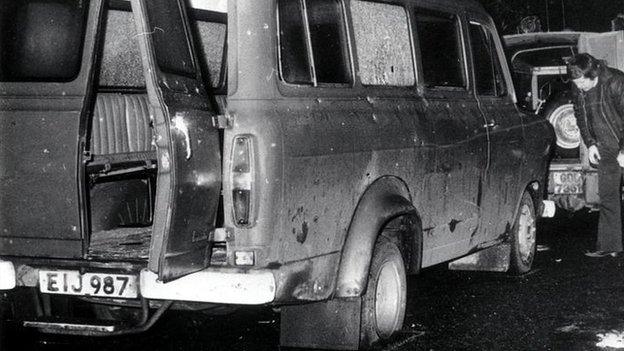Kingsmills massacre: Inquest due to start later this month
- Published
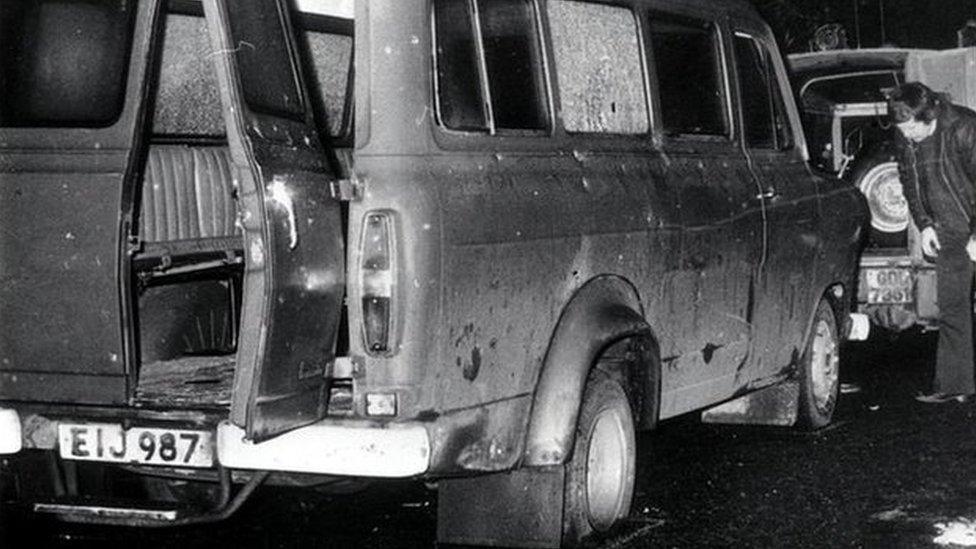
The Protestant textile workers were travelling home from work when their mini-bus was ambushed
The long-awaited inquest into the Kingsmills massacre is due to begin in Belfast later this month.
It will begin on 23 May and it is expected that it will last at least a month.
Ten Protestant workmen were shot dead when an IRA gang ambushed their minibus near the County Armagh village in 1976.
The gunmen had asked the workers in a minibus about their religion, before telling the one Catholic man on the bus to leave.
An eleventh victim, Alan Black, was shot 18 times but survived the attack.
He was present at the preliminary hearing on Friday.
Families for the victims have said they are concerned that more than 1,300 pages of sensitive intelligence documents have still not been released to them and their legal representatives by the PSNI and Ministry of Defence, even though the inquest is due to start in 10 day's time.
A barrister for the PSNI told the court that checking the material was a "mammoth task" and that they were working "as assiduously as possible".
It is possible that a hearing may be needed next week to deal with a public interest immunity certificate for the material.
The inquest will call former officers of the Historical Enquiries Team (HET) which looked at the killings in 2011, and concluded that the Provisional IRA was responsible, despite being on ceasefire at the time.
'Truth'
Witnesses on the intelligence material are not expected to be called before mid-June.
Speaking after the hearing, Alan Black said he was disappointed that the material was being released so late in the day, giving him and relatives of the victims very little time to study and digest it.
"This is the very last chance of getting to the truth of what happened at Kingsmills," he said.
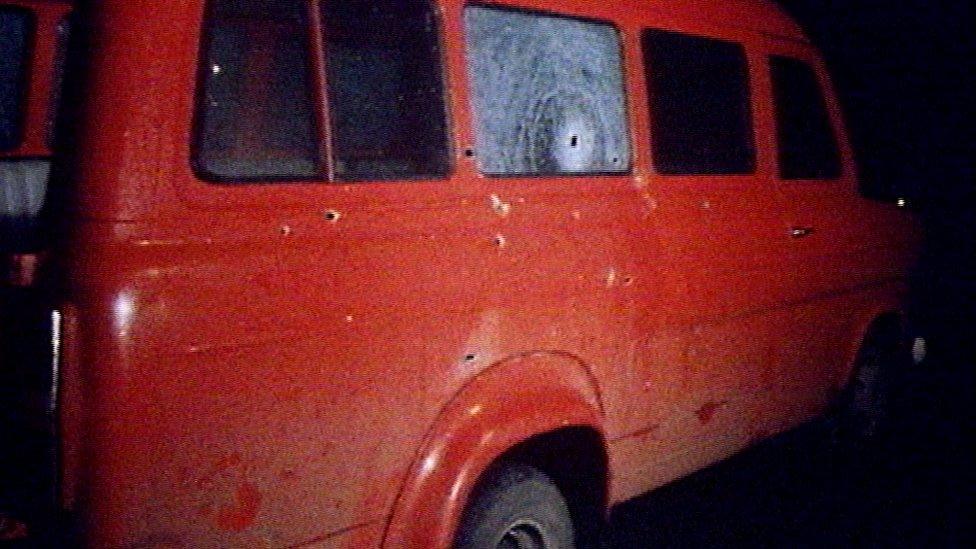
The 10 men were murdered after the IRA stopped their work mini-bus and shot them.
"So it is very very important that we get everything right, and get down to the smallest detail. If that means it takes longer, so be it."
He said he hoped that a call for the former IRA informer Sean O'Callaghan to give evidence at the inquest would be heeded, in the hope of shedding light on the motives of the killers.
"These men are looking at their own mortality as well," said Mr Black.
'Conscience'
"Now I wouldn't want to be going to my grave with that heavy stuff on my conscience."
Coroner, Brian Sherrard, repeated a call for anyone with any knowledge or involvement in the killings to contact his office and assist the inquest, "even at this very late stage".
Outside, Mr Black echoed that call: "That's my hope, that someone with a conscience will come forward."
The men who died were John Bryans, Robert Chambers, Reginald Chapman, Walter Chapman, Robert Freeburn, Joseph Lemmon, John McConville, James McWhirter, Robert Samuel Walker and Kenneth Worton.
A memorial service was held in January to mark the 40th anniversary.
- Published5 January 2016
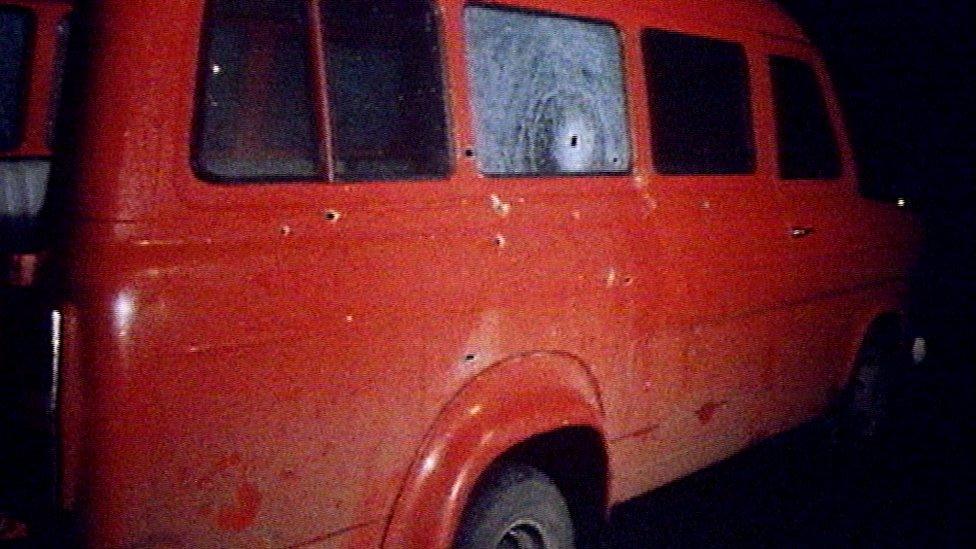
- Published1 June 2015
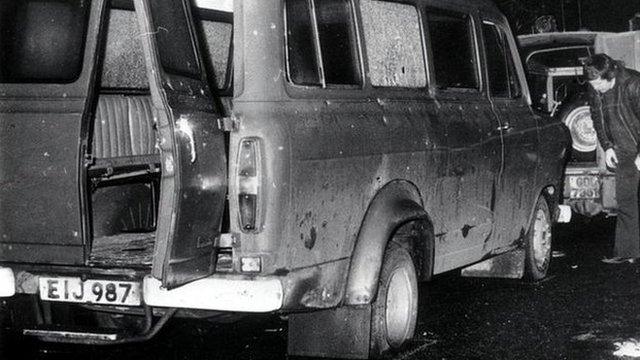
- Published23 April 2015
